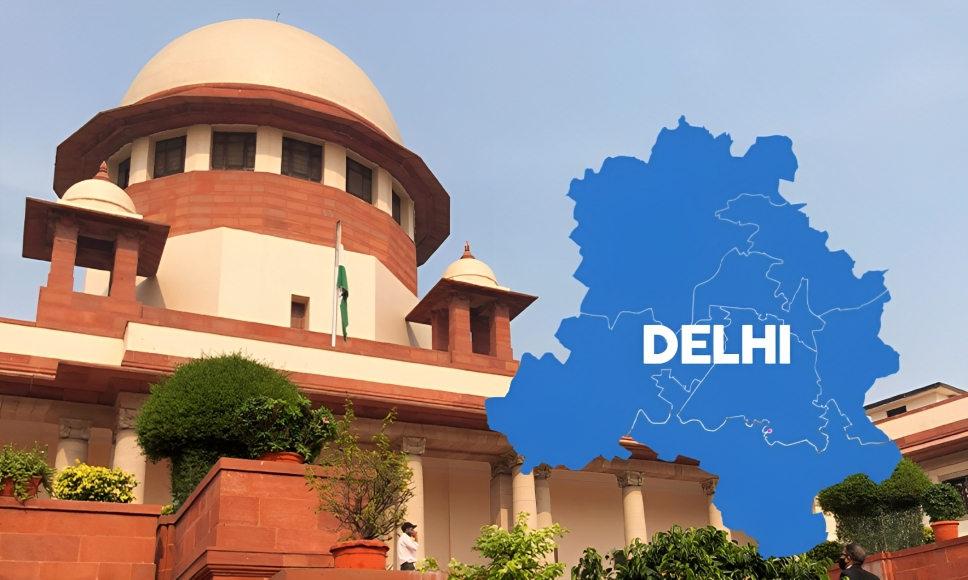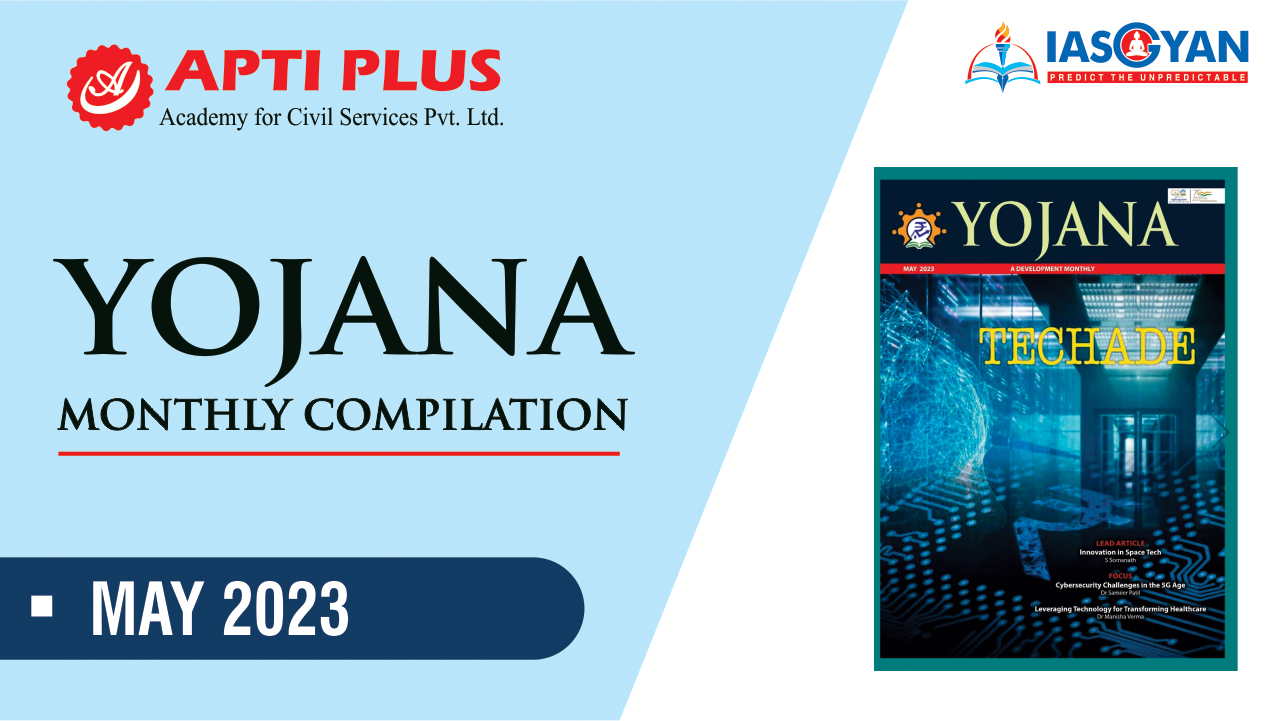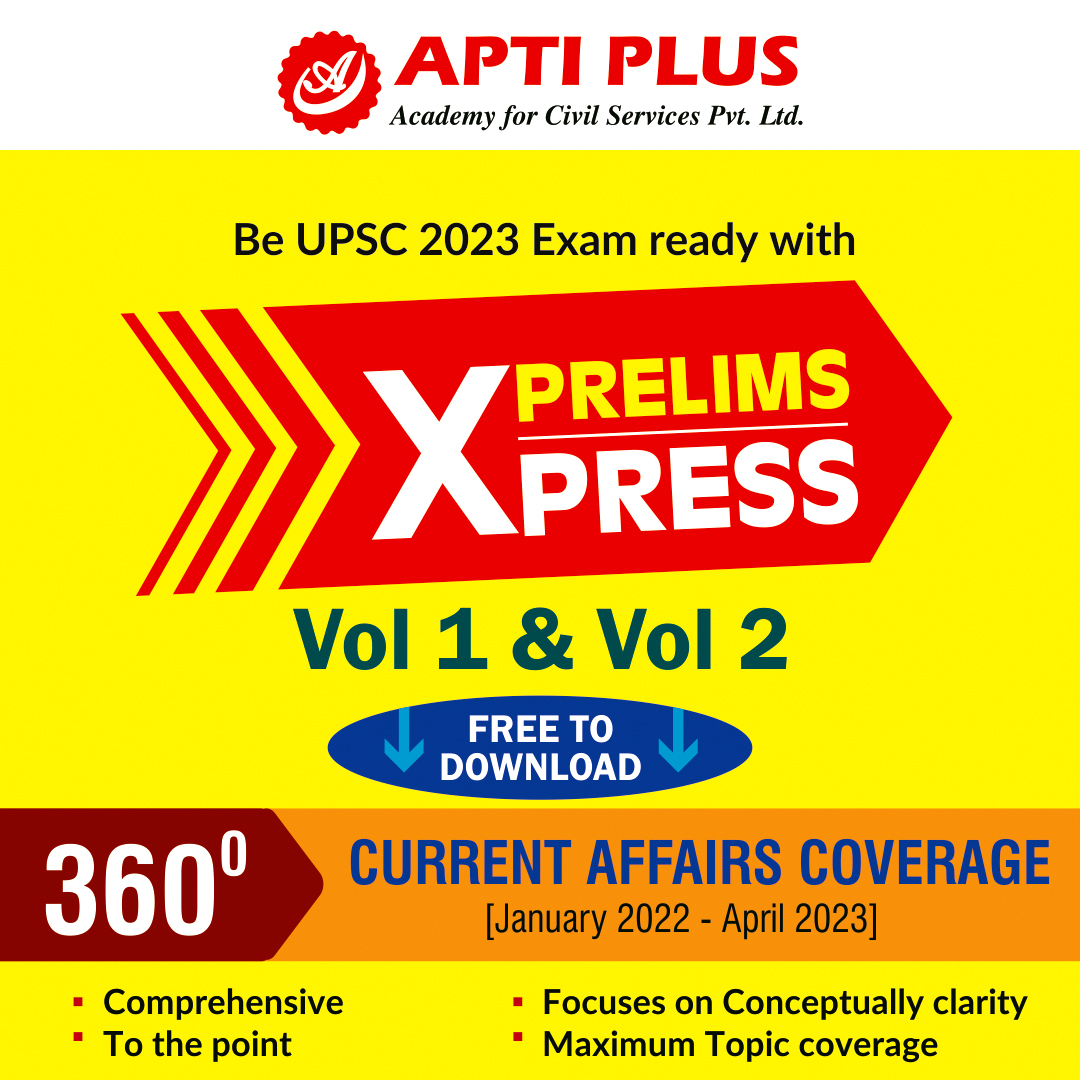Description

Copyright infringement not intended
Context: The Supreme Court of India has delivered a landmark verdict on the long-standing dispute between the Centre and the Delhi government over the control of services in the national capital.
Details
- The five-judge constitution bench, headed by Chief Justice DY Chandrachud, unanimously ruled that the elected government of Delhi has legislative and executive powers over administrative services, except in areas outside its jurisdiction.
- The court said that this decision would uphold the basic structure of federalism and democracy.
Background
- The verdict came as a major relief for the Delhi government, which had been locked in a bitter power tussle with the Centre since 2015 when a Union Home Ministry notification gave the Lieutenant Governor of Delhi control over services.
- The Delhi government challenged this notification in the Delhi High Court, which upheld it in 2017.
- The matter then reached the Supreme Court, which referred it to a larger constitutional bench.
- In 2018, a five-judge constitution bench, headed by then CJI Dipak Misra, laid down the broad principles governing the relationship between Delhi and the Centre and ruled in favour of the Delhi government on most issues.
- However, the specific issue of services was left unresolved, as two judges delivered a split verdict on it in 2019.
- The issue was then referred to another three-judge bench, and eventually to a five-judge constitution bench, which has now settled it.

Highlights of the court verdict
- The Supreme Court verdict has clarified the constitutional position and settled the ambiguity over the division of powers between the Centre and the Delhi government.
- The verdict was based on a careful interpretation of Article 239AA of the Constitution, which provides a special status to Delhi as a Union Territory with a Legislative Assembly.
- The court noted that Article 239AA was inserted by a constitutional amendment in 1991, and it was not intended to be an amendment to the Constitution itself.
- The court also observed that Article 239AA sub-clause 3 balances the interests of NCTD and the Union of India, and excludes certain entries from the legislative domain of Delhi, such as public order, police and land.
Rejected the argument of the Centre
- The court rejected the argument of the Centre that the term "services" falls under Entry 41 of List II of the Seventh Schedule, which deals with "State Public Services; State Public Service Commission".
- The court said that Entry 41 does not cover all aspects of services, and it is only applicable to states and not Union Territories.
- The court also said that Entry 41 does not confer any executive power on the states over services, and it is only a source of legislative power.
Article 239AA
- The court held that Article 239AA of the Constitution, grants legislative power to the Delhi assembly concerning all matters enumerated in List II (State List) and List III (Concurrent List) of Schedule VII of the Constitution, except for entries 1 (public order), 2 (police) and 18 (land) of List II.
- The Bench observed that "Services" is not an entry in any of these lists, however, the court said that services are not an excluded subject, and therefore fall within the domain of the Delhi government.
Cooperative federalism
- The court also said that its verdict does not interfere with the constitutional scheme of cooperative federalism, and urged both parties to work harmoniously for the welfare of Delhi's citizens.
On Lieutenant Governor
- The court said that the Lieutenant Governor is bound by the aid and advice of the council of ministers of Delhi, except in matters where he has to exercise his discretion.
Not affect Union Government Power
- The court clarified that its verdict does not affect the powers of the Union government over matters relating to national security, foreign affairs, defence and communications, which are outside the purview of Delhi's legislative assembly.
Restored the power of elected government
- It has also restored the primacy of the elected government in matters of governance and policy-making. The verdict has implications for several aspects of administration and development in Delhi, such as health, education, transport, water supply, electricity, etc.
Empowers the Delhi government
- The verdict also empowers the Delhi government to take action against errant or non-cooperative officers. For instance, hours after the verdict, the Delhi government removed the services secretary for allegedly obstructing public work.
Better coordination and cooperation
- The verdict also paves the way for better coordination and cooperation between the Centre and the Delhi government for the welfare of the people of Delhi.
- The Supreme Court has urged both sides to work harmoniously and respect each other's authority. It has also been said that any difference of opinion between them should be resolved through dialogue and consultation.

Conclusion
- The court concluded that the Delhi government has legislative and executive powers over services in Delhi, subject to certain limitations and exceptions. The court said that this would ensure smooth governance and administration in Delhi, and avoid unnecessary conflicts and litigation between the Centre and the Delhi government.
Must Read Articles:
Government of National Capital Territory of Delhi (Amendment) Act or GNCTD Act of 2021: https://www.iasgyan.in/daily-current-affairs/government-of-national-capital-territory-of-delhi-amendment-act-2021
The complete history of Delhi Governance: https://www.iasgyan.in/blogs/the-complete-history-of-delhis-governance
|
PRACTICE QUESTION
Q. The Supreme Court of India recently delivered a landmark verdict on the issue of control over services in the National Capital Territory of Delhi. What is the significance of this verdict? How does it affect the governance and administration of Delhi? What are the challenges and opportunities for cooperation between the Centre and the Delhi government? And what is the way forward for resolving the long-standing dispute over the constitutional status of Delhi?
|
https://indianexpress.com/article/explained/explained-law/supreme-court-verdict-on-control-over-services-what-tilted-scales-in-delhis-favour-8604762/
https://indianexpress.com/article/explained/delhi-govt-to-decide-postings-transfers-but-some-red-lines-8604758/
https://indianexpress.com/article/explained/explained-law/sc-redraws-lines-for-constitutional-offices-holds-up-sanctity-of-elected-govts-8604855/











